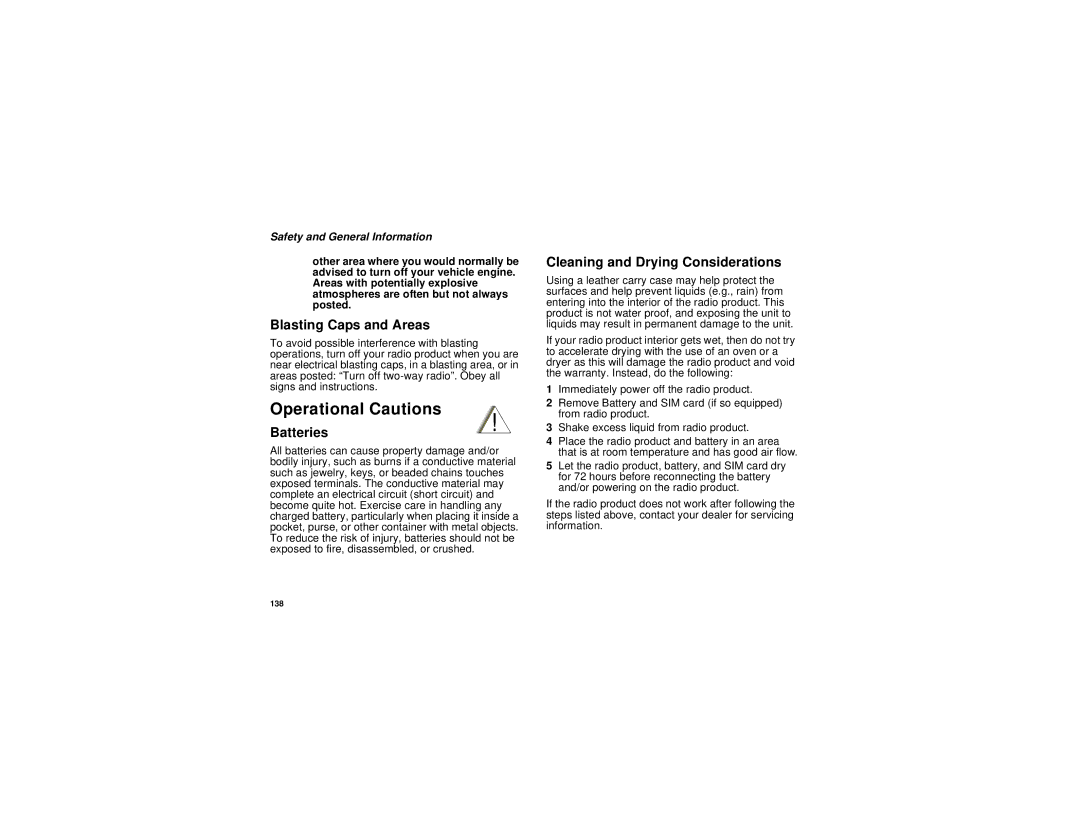Safety and General Information
other area where you would normally be advised to turn off your vehicle engine. Areas with potentially explosive atmospheres are often but not always posted.
Blasting Caps and Areas
To avoid possible interference with blasting operations, turn off your radio product when you are near electrical blasting caps, in a blasting area, or in areas posted: “Turn off
Operational Cautions
Batteries!
All batteries can cause property damage and/or bodily injury, such as burns if a conductive material such as jewelry, keys, or beaded chains touches exposed terminals. The conductive material may complete an electrical circuit (short circuit) and become quite hot. Exercise care in handling any charged battery, particularly when placing it inside a pocket, purse, or other container with metal objects. To reduce the risk of injury, batteries should not be exposed to fire, disassembled, or crushed.
Cleaning and Drying Considerations
Using a leather carry case may help protect the surfaces and help prevent liquids (e.g., rain) from entering into the interior of the radio product. This product is not water proof, and exposing the unit to liquids may result in permanent damage to the unit.
If your radio product interior gets wet, then do not try to accelerate drying with the use of an oven or a dryer as this will damage the radio product and void the warranty. Instead, do the following:
1Immediately power off the radio product.
2Remove Battery and SIM card (if so equipped) from radio product.
3Shake excess liquid from radio product.
4Place the radio product and battery in an area that is at room temperature and has good air flow.
5Let the radio product, battery, and SIM card dry for 72 hours before reconnecting the battery and/or powering on the radio product.
If the radio product does not work after following the steps listed above, contact your dealer for servicing information.
138
